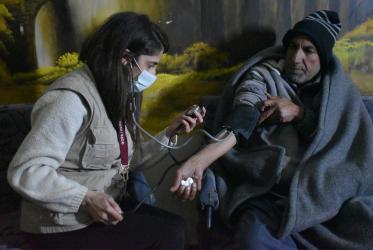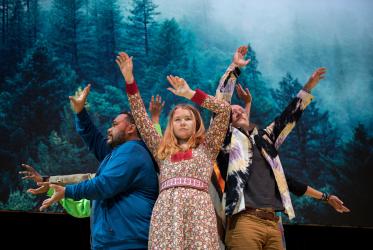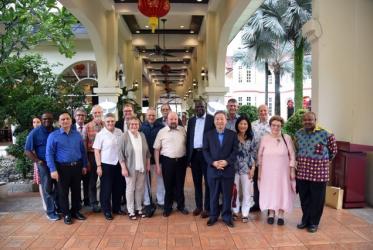Displaying 1 - 20 of 23
Climate crisis fuels existing water injustice
27 October 2021
Christian Aid commissions ‘requiem for the climate’
17 February 2020
WCC well-represented in Religions for Peace leadership
07 October 2019
Behind-the-scenes in the kitchen at Bossey
15 August 2019
WCC represented at G20 Interfaith forum in Tokyo
13 June 2019
Tveit on the “Ten Commandments” of food
26 January 2016
COP21: how climate change affects access to our daily bread
09 December 2015














